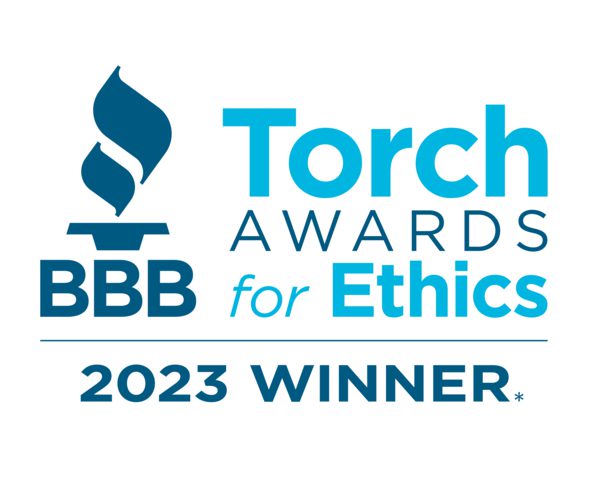Shattering Stereotypes: Stories of Success in Thinking Differently about Disability.

Robert, a 95-year-old World War II Veteran, is the first recipient of a ramp that was fully funded by the Veteran’s Fund. Because of his disabilities, Robert relied on his 73-year-old son and great-grandson to help carry him in and out of his house. Robert’s daughter, Robin, was determined to find a better solution for their family. After months of reaching out to various organizations, she came across an ad in the newspaper for The Ability Center’s Veteran’s Fund. Robin contacted the Ability Center and learned that her dad could qualify to have a ramp installed at his house, at no cost to the family. Robin expressed how impressed she was by the kindness and clear communication of The Ability Center staff throughout the process.
As part of the Ability Center’s mission to make our community the most disability friendly in the nation, it is an honor to assist veterans like Robert who have served our country.
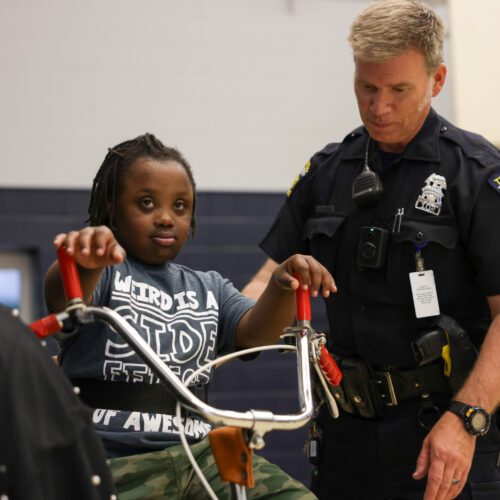
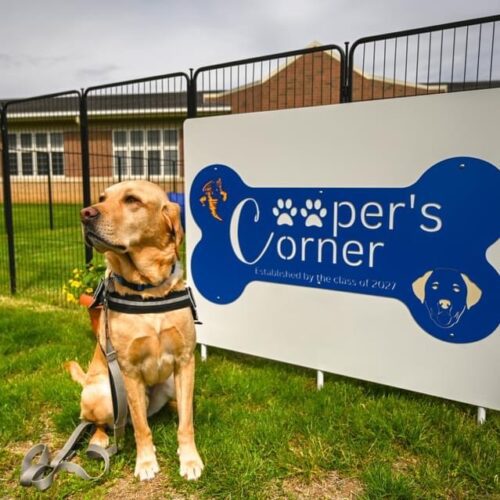
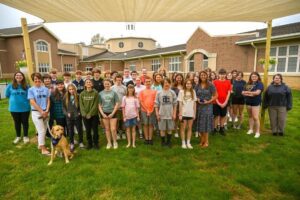
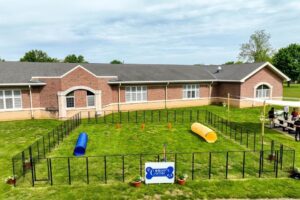
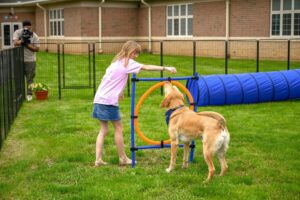
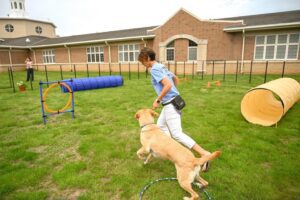
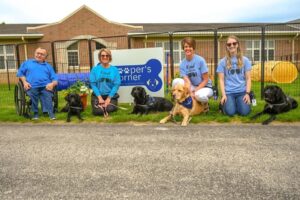
Featured On:

Born with advanced cerebral palsy, Nathan Turner has considerable personal experience dealing with Medicaid, Medicare, Social Security, and other public benefits. He understands the challenges in navigating those systems’ complex eligibility requirements—especially while actively pursuing a career. That’s why he devotes much of his time to advocating for justice, accessibility, and equal rights in the disability community.
Nate knows that many employers view individuals with disabilities as incapable of competing in the job market. Then, when they secure jobs, some are expected to forgo the critical public benefits that enable them to work. But unlike so-called welfare-to-work programs intended to lessen public assistance, the need for disability benefits does not end when someone becomes employed.
“My experience has resulted in a commitment to social justice, human rights, and strengthening community inclusion, especially as they relate to the Black, Indigenous, and Other People of Color (BIPOC) and disability communities.”
Nate is deeply involved in advocacy within the developmental disability system and was the first person to serve on the Lucas County Board of Developmental Disabilities eligible for services. He is also involved with the Ohio Tech Ambassador Network, advocating for supportive technologies that enhance independence.
When he’s not advocating for higher levels of self-determination in the disability community, Nate works as a Senior Web Quality Rater for Lionbridge Global Support Services. He has a Bachelor of Arts in Political Science and International Studies from Wright State University and serves on several area boards.
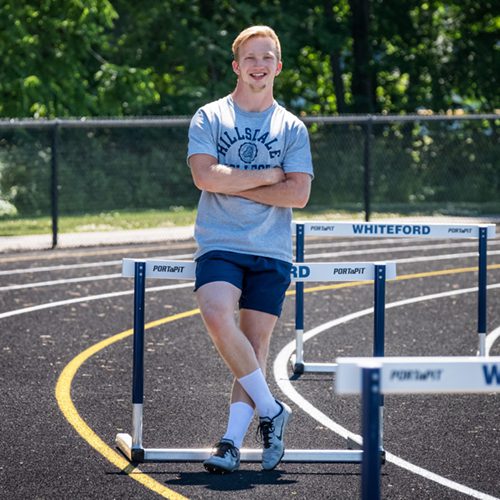
A combination of heart defects associated with Holt-Oram syndrome led to multiple cardiac surgeries before his third birthday, cost him his left thumb, and has often meant working harder to keep pace with others. But Ty credits those challenges for inspiring an unmatched personal resolve and strong work ethic.
A 2022 recipient of a scholarship from The Ability Center Auxiliary, Ty is pursuing degrees in applied mathematics and English at Hillsdale College while considering economics and physics as potential career paths. He graduated from Whiteford High School in Ottawa Lake, Michigan, where he earned academic honors and played football, basketball, and track.
Because of Holt-Oram, Ty must frequently discover ways to complete tasks most people do without thought. But rather than focusing on his medical history, he prefers that people see him as a student, an athlete, and an overcomer.
“I want others to look at my determination and intelligence, not my physical characteristics,” says Ty. “I feel my life exemplifies how perseverance and hard work can function cooperatively with a disability.”
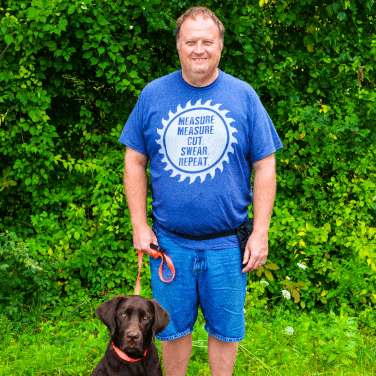
Diagnosed with multiple sclerosis in 1997, Brent worked at American Standard for 17 years until it closed, then at Cooper Tire for 14. A hard-working man all his life, Brent quickly realized after his sudden diagnosis, he would need support to continue living the independent life he knew.
After finding us through a Google search, Brent did his homework. “After reading the reviews and success stories, I knew this place was for me.”
In August 2021, Ron entered Brent’s life. His tasks stretch beyond typical tasks of a service dog, he keeps the activities Brent loves at the top of his to-do list. “Crafting my own Christmas presents is one of my favorite things to do,” Brent shares. Ron grabs his tools and keeps him moving and creating. An avid runner, Brent ran in marathons and other races prior to his diagnosis.
“I think Ron and I bonded from day one. It's hard to pick one task because Ron does well at all of them. He always gets my shoes every morning.” Balance and stability, grabbing items out of the fridge, tugging a clothes basket, helping in and out chairs, putting on socks and getting in and out of bed are tasks Ron was trained to do specifically for Brent.
Brent is not shy about sharing his experience with others who may need assistance. “The wait that it takes to get a dog is worth it. I thank the staff for giving me a great companion. I am more confident in public and not worried about falling in the stores or out in about. When I'm not at my best, he is there.”

At age three, doctors diagnosed Livy with Type 1 Diabetes. A year later, they discovered she had Hashimoto’s Thyroid Disease. For Livy, managing those chronic conditions meant learning personal responsibility far earlier than most people her age. By her estimate, she makes an extra 30-40 daily decisions most of us never need to consider.
Olivia attends Adrian College, where she plays on the school’s golf team. Not long ago, doctors informed her she had Solar Urticaria, a rare allergic reaction to sun exposure. Determined not to let that diagnosis prevent her from playing competitive golf, Livy resolved to overpower this condition as she does the others.
Livy received a college scholarship from The Ability Center Auxiliary in 2022. A member of the Honors College, she studies biology and public health and plans on becoming a physician assistant specializing in elderly care. Olivia understands the importance of patient care needs at all ages and hopes to advocate on behalf of vulnerable patient populations.
While most golfers go a lifetime without making a hole-in-one, Livy has two to her credit. Whether beating the odds on the golf course or handling the rarest medical conditions, she is truly one in a million.
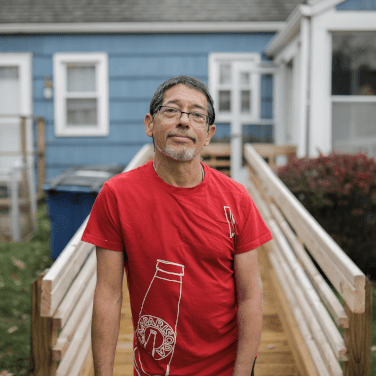
Although Greg’s home was accessible, the next focus was on more safety. His ramp did not have handrails, so The Ability Center HAP added wood handrails to his outside ramp. They also replaced the wooden threshold ramp inside with an aluminum ramp because it was too steep. “Thank you all so much for what you do! You have no idea how much you’ve helped me or what it means,” Greg said. “The Ability Center is a local treasure! As long as you guys are around, I know that angels walk among us!”
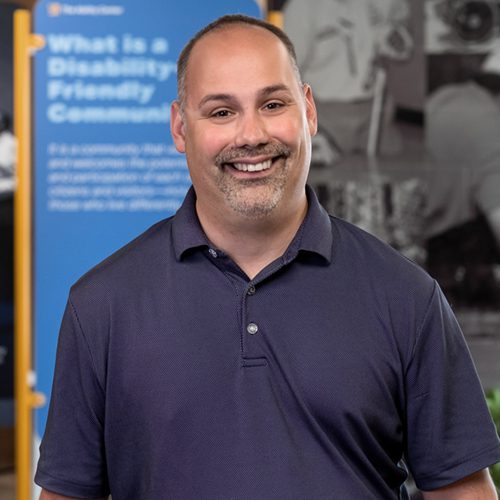
When he was just a high school senior, a software contractor sought his help completing a complicated project for the City of Toledo Department of Public Utilities. That secured his standing as an IT prodigy.
Chris was born with cerebral palsy, which initially caused potential employers to wonder how well he could perform their jobs. Early positions in network administration and engineering gave him additional experience. But what Chris really wanted was to work for Cisco. After applying persistently for two years, he ultimately landed a position at the company.
Today, Chris holds Cisco’s CCIE® certification, the networking industry’s highest credential. As a system architect, he travels worldwide, supporting one of his employer’s top 26 customers. He prides himself on having expertise in both technical and business arenas.
Chris hopes people realize he reached the top of his profession despite his disability—not because of it. He never shies away from talking about his cerebral palsy with those who are curious; indeed, he encourages people to ask questions without worrying they might offend him. And rather than wondering whether he requires assistance, he prefers they consider how he can help them.
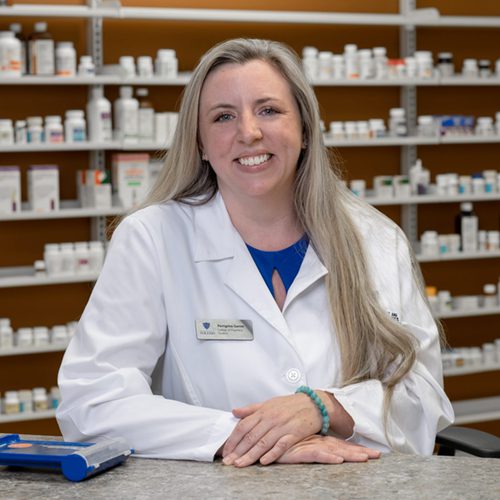
Perrigrine (Perri) is a single mother of three living with cerebral palsy. Her life, like many young parents, is centered around her children. The co-captain of her daughter’s cheerleading team, Perri volunteers frequently at her daughters’ school activities. Community members share, “She is a faithful, hardworking, dedicated, respectful person who communicates timely and efficiently. I have witnessed these traits in her as a mom and school volunteer.” What sets Perri apart from other young moms is her determination to remove barriers associated with her disability.
Shortly after birth, Perri had a stroke. She explains, “Even though I was diagnosed with a pediatric stroke as a child, it wasn’t until after I had my third child when I was 25 years old that I was diagnosed with cerebral palsy and debilitating chronic pain. I made the difficult decision to quit a well-paying career in retail management because of the chronic flare in new symptoms relating to pre-existing conditions. I soon realized there were not many effective treatments for chronic pain especially for adults like myself that had grown from childhood-related disabilities.”
After this career shift, Perri was accepted into the Pharm D Program at The University of Toledo (UT). Strength in academics paired with a passion for helping others pushed her into this rewarding career. Support staff at the University of Toledo explain, “I am always impressed by her listening skills, self-advocacy, and willingness to learn. She is conscientious about always asking questions to understand best to support her personal and student success.” Though she was aware of The Ability Center through the Zoo Day event, it was a referral from Disability Services at UT that connected her more resources.
Perri shares, “They made my home more accessible by getting me a more usable door handle and lock. Before the lock and new door handle, it would take me multiple attempts to open the front door, now it’s extremely easy to open, lock and unlock! Also, the food chopper cuts down on meal prep by half the time. I don’t have to worry as much about cutting myself or being as exhausted while trying to cook. Everyone I have interacted with at The Ability Center has been knowledgeable, kind, and supportive. I would love to be more involved and give back to others in need through The Ability Center, just as they have done for myself and my family.”
In spring 2021, Perri received a scholarship through the Auxiliary to The Ability Center. She shares, “Without the help of grants and scholarships I would be unable to pursue my dream of a better education. I know that I have the passion, thoughtfulness, willpower, and determination to make the world a better place by making a positive contribution. I feel that the disability community needs to unite more than ever, and we need to empower each other to make a difference in our lives.”
After graduation, she’d like to combine her years of experience in retail and pharmaceutical knowledge and become a retail pharmacist. She genuinely loves to help people, which is the reason why she studies pharmacy. Perri reflects, “Even though I have physical disabilities, I have always told myself that no matter what obstacles may be in your way if you put the mental effort into a goal it can be accomplished.”
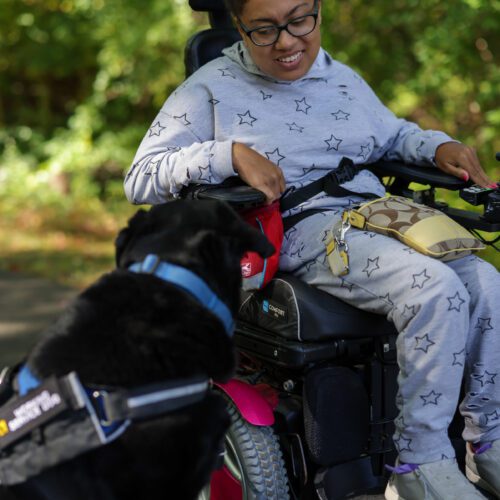
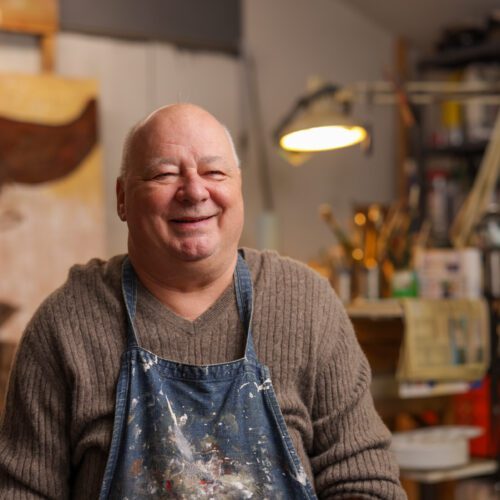

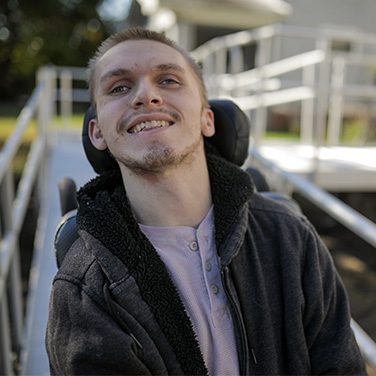
His wooden ramp eventually began to deteriorate and in October 2020, Zach received a new aluminum ramp thanks to a grant from Toledo Elks #53. Now at 20 years old, Zach’s goals are to continue increasing his independence and to attend college.
“It’s much easier for Zach to catch the bus in the morning, get to appointments, and get outside for exercise and fresh air,” Robert Roecker, Zach’s father, said. “Having the ramp is a tremendous help for us.” Zach is a senior at Bowsher High School and is looking at post-graduation options.
Zach explains, “I want to work with animals or work athletic events at the Huntington Center or the University of Toledo.”
The ramp will help Zach and his family for many years to come.
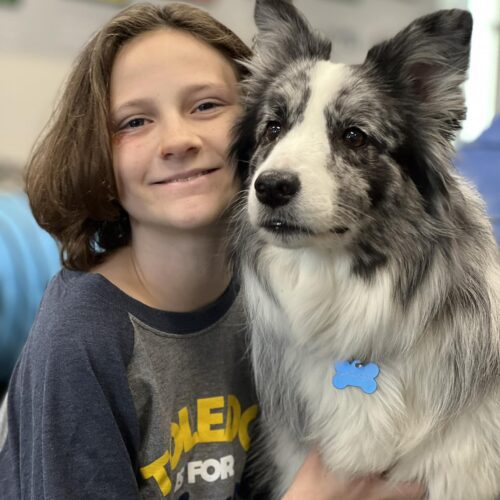
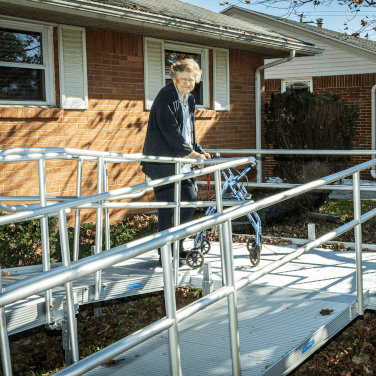
Christine “Chris” of Maumee, served others as a nurse for over 25 years at St. Luke's Hospital. Always caring for others - Chris never perceived herself as someone in need of services.
Throughout college, Chris' daughter volunteered with The Ability Center, assisting people with disabilities to create their own unique works of art. “Folks wanted to learn how to paint, she’d guide and teach them to make beautiful art and paintings. The work helped her in her degree and that is how I found out about The Ability Center,” she shares.
“I was busy doing all the mom things and I just put it in the back of my mind.”
Years passed, and after the loss of two of her three daughters, Chris found herself as a single mother searching for a home that she could grow old in. After looking high and low for the perfect home, Chris landed in Maumee close to her church and favorite stores. Collections of hand painted art and birdhouses fill the home she shares with her beloved dog, Anthony. As her arthritis began to worsen, she quickly realized steps in front and back of the home were high and made it unsafe to step in and out.
“I remember, it clicked. I thought about The Ability Center and I called, spoke to the staff, went to the library to fill out the application and that was it. Then, out of the clear blue sky I got a call that I could get a ramp. I could hardly sleep that night. I was going to get my own miracle.”
Having a ramp was useful not only for Chris, but also for her friends. “They weren't able to come to visit me because of the awkwardness of how high my steps were to get into. I love cooking, so I can invite them over for a meal and have a good time with them.” With a special fondness for Jiggs dinners, Chris cherishes dinners with close friends.
Fran, Chris’s lunch guest, observes Chris as she precisely plates the table and gently folds napkins in each place. “This is bountiful,” Fran explains. “No one makes a spread like Chris.”
Our carpenters' work impressed Chris so much that she sent them cookies as a note of gratitude. Chris says, “You know, love grows in small houses. This gives me the opportunity to make memories with my friends again. Without it, I would be stuck in my home.”
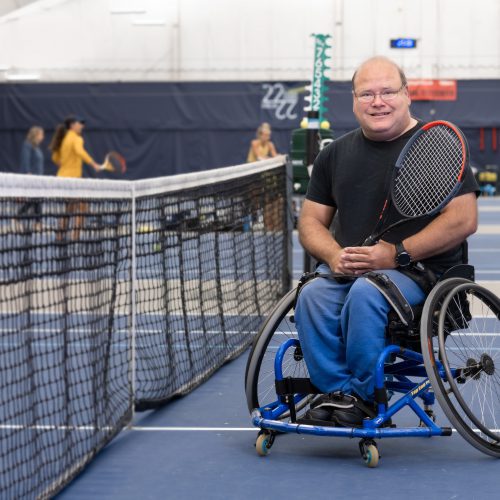
”I don’t know anything different,” says Gary Peters, matter-of-factly describing his experience living with a disability. He’s not trying to brush over the subject, mind you. But he would much rather discuss his primary interests: athletics and wildlife photography.
Gary began playing wheelchair basketball as a youngster, one of the few early sports available to disabled athletes. Around that time, he also became active in the local wheelchair road racing scene, competing in 5K, 10K, and half-marathon events.
Then several years ago, he discovered sled hockey, in which players sit in specially designed sleds fixed to skate blades. Participants carry two hockey sticks instead of one and use the metal picks on each butt end to propel themselves along the ice. After injuring his shoulder while playing hockey, Gary decided to heed his doctor’s advice and find a sport with less contact.
Now into playing wheelchair tennis, Gary is part of the Glass City Backspinners. The wheelchair tennis group gathers to compete on Friday evenings at Twos Athletic Club in Toledo. (The Ability Center sponsors the Backspinners’ weekly practice session.)
An active wildlife photographer, Gary is part of two local birding groups. Some of his stunning photographs are available on his Facebook page.
Gary is a stay-at-home caregiver and looks out for his two older siblings.
”Sports and photography are my escape,” he says.
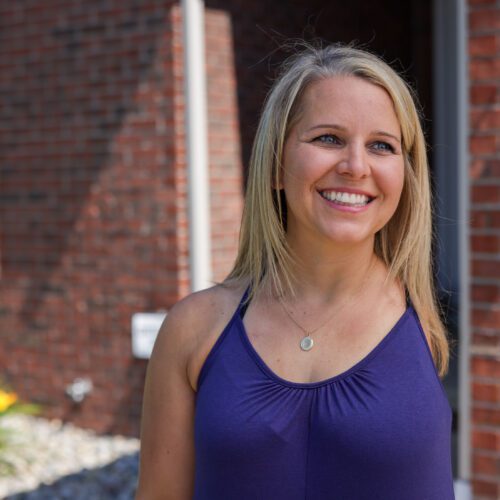
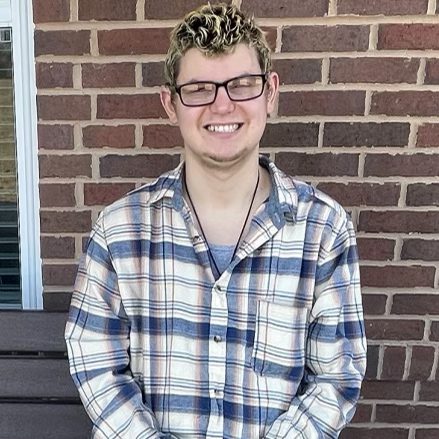
In 2018, Jimmy enrolled in the Next Steps Summer Program, a unique summer experience where students stay on the campus of The University of Toledo while working during the day. “I remember how shy I was when I was in the room
with new Ability Center consumers, but I eventually became so motivated to answer every question,” Jimmy said.
“During school, I never liked to raise my hand unless the teachers asked me a question, but I felt so comfortable during this program.”
After completing the program, Jimmy decided it was time for him to learn how to live independently on his own. With the help of Lucas Board of Development Disabilities, he was approved for his own apartment. “Once I got approved to live in my apartment, I felt amazing and happy,” Jimmy said. “I am not fully independent yet but that’s okay. I’m still learning.”
The Ability Center connected him with resources to furnish his apartment and offered resources to learn skills like meal preparation, budgeting, and time management to make sure he continued to take care of himself. “I thought I would live with my parents for the rest of my life,” Jimmy said. “But one night I realized I wanted to become more responsible and more independent. You never know what you will achieve in your life. I never thought this would be my life and I’m truly happy about it.”
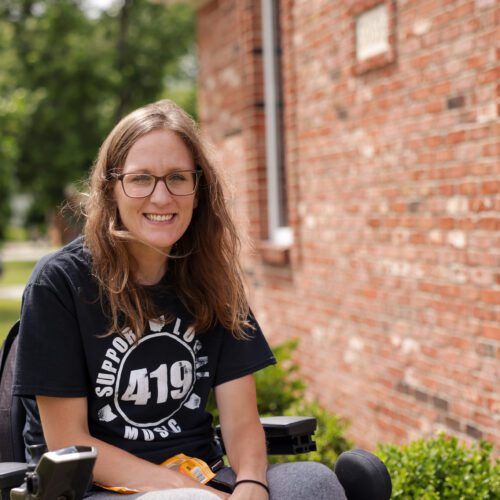

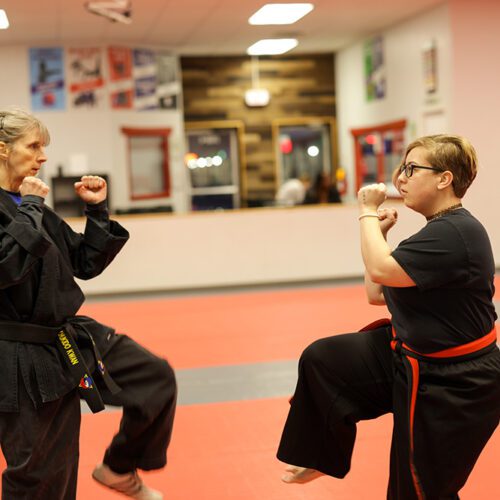
Socialization exercises, cooking and financial management classes have supported her development of critical life skills. One-on-one meetings with staff help her keep track of her progress and give her a fresh perspective when she needs it.
“I have trouble processing information in a conversation and at school and in my everyday life. Which means if someone talks too fast then I cannot hear everything they are saying, so I would have to ask them to repeat again,” Amanda explains.
A friend introduced her to programming and she soon discovered the difference was in the outlook. “We are encouraged to go out into the world and do life with people. Not to be nervous to try even if we fail. The Ability Center teaches me resilience and how to bounce back.”
Her quest for growth led Amanda to discover a passion for working with children with disabilities. A student at Owens Community College, she aspires to become a paraprofessional to help kids feel better about themselves. Ultimately, she hopes to become an intervention specialist or occupational therapist to make an even bigger impact in the lives of those with disabilities.
Amanda learned the value of trying new things and pursuing her passions through her experience with The Ability Center. She takes advantage of her newfound organization skills to stay on task, and she schedules some time for creative expression – whether it is doing karate, playing music, or creating art.
And, of course, this story wouldn’t be complete without mentioning her mean taco-making skills.



